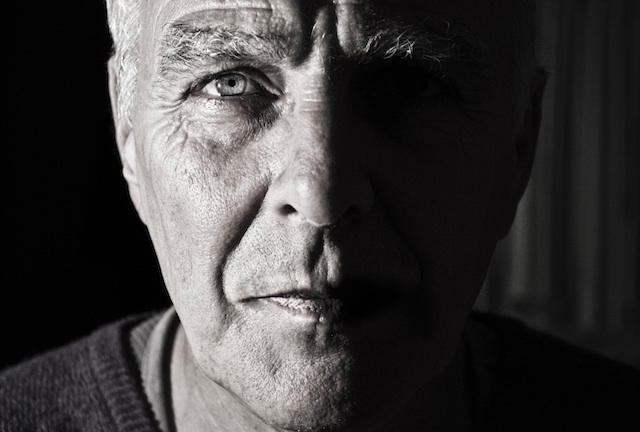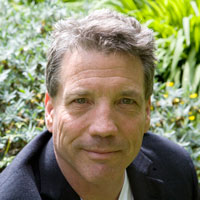We have so many reasons not to love ourselves.
Emotional trauma, guilt, blame, stress, doubt, and a host of other emotions block our desire to love ourselves.
When we carry painful memories of emotional trauma, inevitably we tend to believe that we are responsible for causing it and that we have done something wrong. After all, the lesson that we learned as children is that people who traumatize us can’t possibly be that screwed up, it must be our fault we were abused. There are so many aspects of that dynamic that are irrational, it is hard to know where to begin.
So let’s start at the beginning.
For most people, the moment we were born there was a god-like person who breast fed us, nurtured us, cleaned us and kept us safe. We called her Mother (or the equivalent). Then, at some point or another figure appeared in our environment who did the same thing, except they didn’t breast feed us. We called him Father (or the equivalent). These people were our gods, and we learned early on to depend on them. It’s possible that at first, the male figure was a threat who interfered with our relationship to Mother. However, we learned to accept Father as an authority figure we had to obey, just like we had to obey Mother.
Of course, some of us didn’t have a Mother or Father, and this created a void in our life. When we saw others with Mothers and Fathers, we assumed we didn’t deserve the missing parent. Again, we assumed it was our fault.
I was born prematurely, and weighed 3.5 pounds. I also had fetal alcohol syndrome (thanks, Mom) and was immediately put into a metal incubator. I looked more like a science experiment with glass windows and gloves for the medical team to wear when they touched me. Birthing rooms with recliners, plants and soft lighting were decades away. I didn’t experience human touch for six weeks, and thus I did not bond to Mother as others do. Mother and Father simply appeared and took me home. Then they handed me off to a nanny, who was someone else to deal with and with whom I didn’t bond. No wonder I have issues.
Then we grow a little older and we go to school. I was put in kindergarten at four years old to start, and there I learned the concepts of: competition, less than, popularity and rejection. It only gets worse as we get older. With the entire school class jostling for position and popularity, it is easy to get lost in the mix and mired in the creek mud of being awkward and unpopular. These are powerful lessons to learn, as we learn how to view ourselves as others view us. We learn that we are not likable and stupid in school through the hidden messages of popularity and report cards. When I was picked last on the playground because I was overweight for my age, the message I got was I was unlovable and unworthy of friendship. When I didn’t get an A on a test, I was criticized by my Father and Mother and the lesson continued to be validated because I was too stupid to be lovable.
Then we graduate, and our rank in the world is judged by society to be an indicator of our value and self-worth. I went all the way through high school doing well, almost flunked out in college, and excelled in law school. All the while I learned subtle and not-so-subtle lessons about where I fit in and whether people liked me or not. I think one of the biggest lessons of education for me, in and outside of the classroom, was that everyone had to like me or I was defective. Everyone liked the smart kids, so when I wasn’t number one I was unlikeable. Everyone liked the athletic kids, when I wasn’t athletic I was unlikeable. By constantly feeling unlikeable, it was impossible for me to love myself. Many times I did things that made me feel uncomfortable (class clown) to gain popularity. As a result, I was disciplined when caught or the gamble didn’t turn out so well. Once again, if I was being punished, I must be unlovable.
Then I became a lawyer, the black hole for all who doubt themselves and feel unworthy. Not only could I screw up my life, I had the ability to screw up my client’s life as well. Fortunately, I did very well as a lawyer, but the times that I did not win, I felt like I was right back in elementary school being chosen last on the playground.
So when I started hearing the spiritual and emotional health recommendations that I have to love myself first, I had no idea what they were talking about. My self-doubt and hatred went far deeper than needing to take hot baths or get massages. My angst came from my core, and soft music and candlelight was not going to make me feel better.
I had to find another way to start feeling lovable, and when I did, I started seeing that the world was a much more fun place to be. However, most of the lists of suggestions I read on how to love myself didn’t work for me. This is what did work:
1. I had to meditate for long periods of time so I could detach from that mental tape playing in my mind that I was unworthy.
It is impossible to focus on positive thoughts if you can’t detach from the negative ones. So, I focused mainly on breathing meditations, and just experiencing my breath. Every time my mind wanted to go back and remember all of the things I didn’t like, I would gently bring it back to experiencing my breath. Another technique was to focus on the backs of my eyeballs. I don’t know why that works, it just does, and it helps me break that morbid thinking pattern that always seems to return.
2. I had to stop keeping score.
I had learned early on in school that I had to mentally focus on what everyone one else was doing and what I was doing for everyone else to survive. My early Methodist upbringing suggested that I do more “good” deeds than “sins,” so I had to figure out how to keep score of that.
In order to stop keeping score, and essentially winning at losing, you have to quit thinking about stuff you don’t like. You have to focus on what you do like about your life, even if it means being myopic. Find one thing every day to get excited about and focus on that.
When I stopped keeping score, I quit worrying so much about what everyone else was doing too. That was a critical move for me to be able to start loving myself. This includes not grading myself. Grades are the fastest path to self-doubt and criticism I know (unless you make 100 on everything, good luck with that). The only thing you have to ask yourself is, “Am I still living?” and if the answer is “Yes!” then you are an A+ student.
3. I had to convince myself that I had to be my own biggest cheerleader.
Let’s face it, we can have 100 friends who compliment us every day, and if we don’t believe it, it doesn’t do any good. Some days I can only cheer about the fact that both of my eyeballs opened this morning and I am still breathing this afternoon. When I lost all of my savings to a cult and lost someone who I thought was soulmate to someone else, cheering was not easy an thing to do.
Life comes at us hard and ugly sometimes, especially if we are causing all of the problems. I had to also realize that I am fallible and human. Ultimately, I am the only one that has to feel good about myself. In fact, I do have a lot of friends and they have helped me tremendously through this time, but I am the one that had to shrug my shoulders and say, “That’s alright, that’s okay, I am lovable anyway!”
4. I had to take responsibility for my feelings.
Many times in my life I beat myself up because I didn’t get the results I wanted or the adoration I craved. There is a spiritual morality story that talks about how devotees are so elated when their guru gives them a flower, but when the guru ignores them they fling themselves from the cliff tops. Life is like that for many of us, and we can’t blame the guru for that.
There are many strategies for taking responsibility for our feelings, I write about that repeatedly. The best way I know to be happy when I am not getting what I want is to remember that I am learning and growing all of the time. Many people hate their lives, but don’t want them to change. In order to find self-love, we have to do no harm and allow change to happen organically. We also have to stop criticizing ourselves. There is no use for this, it is self-defeating. We have to commit to learn and improve and do it better the next time.
5. I had to stop taking things personally.
When we finally recognize that everything is not our fault, we don’t have to blame ourselves for anything. This is integral to letting go of trying to control stuff we can’t control. I have a sign over my bed that reads, “I can’t wait to go to bed to lie awake obsessing over everything that I have absolutely no control over.” It is a sarcastic reminder to do absolutely the opposite, and to relax and enjoy my life exactly as it is. I don’t lie awake anymore, I’ve quit that mental obsession of trying to think how something might have been better or how I screwed it up. The bottom line is we can’t think that way and love ourselves at the same time.
The ultimate goal of any being is to love itself—to know our existence has value and meaning. Ironically, the only being able to love itself (human beings) have the hardest time doing it. In a rush to improve and survive, we have taught ourselves how not to love ourselves and then have to spend most of our lives trying to get back to square one.
All I can promise you is when you do love yourself, you will know the greatest joy of all, and be an inspiration to all of those who want to love themselves as well.
Author: James Robinson
Image: Simon Wijers/Unsplash
Editor: Emily Bartran


 Share on bsky
Share on bsky





Read 2 comments and reply